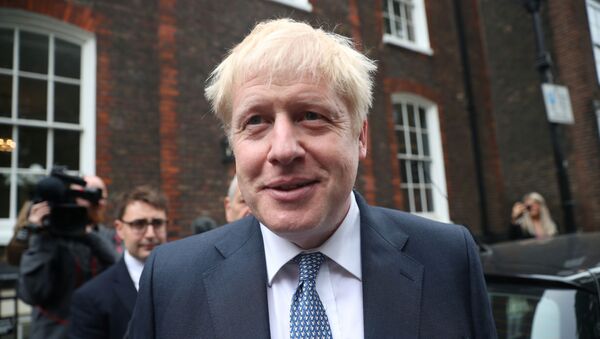Former UK Foreign Secretary Boris Johnson is mulling to abolish or merge several government departments such as Justice, Business, Transport, International Trade, Work and Pensions, and Brexit in order to save 8 billion pounds if he is elected prime minister, The Telegraph reported.
Months before the race for Theresa May's spot started, Johnson called for the Department for International Development to be scrubbed and rolled back into the Foreign Office, since the existing system has led to "inevitable waste" as funds were "shoved out of the door".
According to the UK newspaper, it is believed that the merger of the Departments for International Trade and International Development with the Foreign & Commonwealth Office would save one billion pounds.
Among the most ardent proponents of this plan are reportedly former Brexit Secretary Dominic Raab and ex-Leader of the House of Commons Andrea Leadsom.
The Telegraph quoted sources from Johnson's entourage as saying that any modification or streamlining of the government would have to wait until after Brexit was delivered because the first 100 days of his potential administration at No. 10 Johnson would be busy with ensuring the UK leaves the EU by the new deadline of 31 October.
"I’m certainly of the view that we need to merge some departments and we need fewer people in Cabinet. There is a case for slimming down Whitehall but we can’t do that until we have left the EU and have a chance to review the way the Government works", Leadsom was cited as saying.
One unnamed MP, who backs Johnson, explained to The Telegraph that are three "good reasons" for slimming down the government: "you would have fewer people trying to find ways to spend public money, you would have fewer internecine fights between departments and you have fewer people trying to find ways of imposing regulations".
It is also believed that Johnson is considering the idea of abolishing the Justice Department and bring it under the control of the Home Office, as well as to merge the Offices for Scotland, Wales, and Northern Ireland into a Department of Devolved Affairs.
Boris Johnson, who officially launched his campaign to run for the UK PM's office last month, has yet to comment on these claims.
The report come weeks before ballot papers are set to be delivered to the 160,000 Conservative Party members who will decide who will become the next Tory leader, starting 22 July, while the next UK prime minister is poised to be announced on 23 July. On 20 June, Johnson and British Foreign Secretary Jeremy Hunt secured their places as the final contenders for the Tory leadership.
The next British prime minister will have to deal with the final phase of Brexit, which is set to be delivered on 31 October following Theresa May’s government’s failure to do it on the initial date – 29 March.


